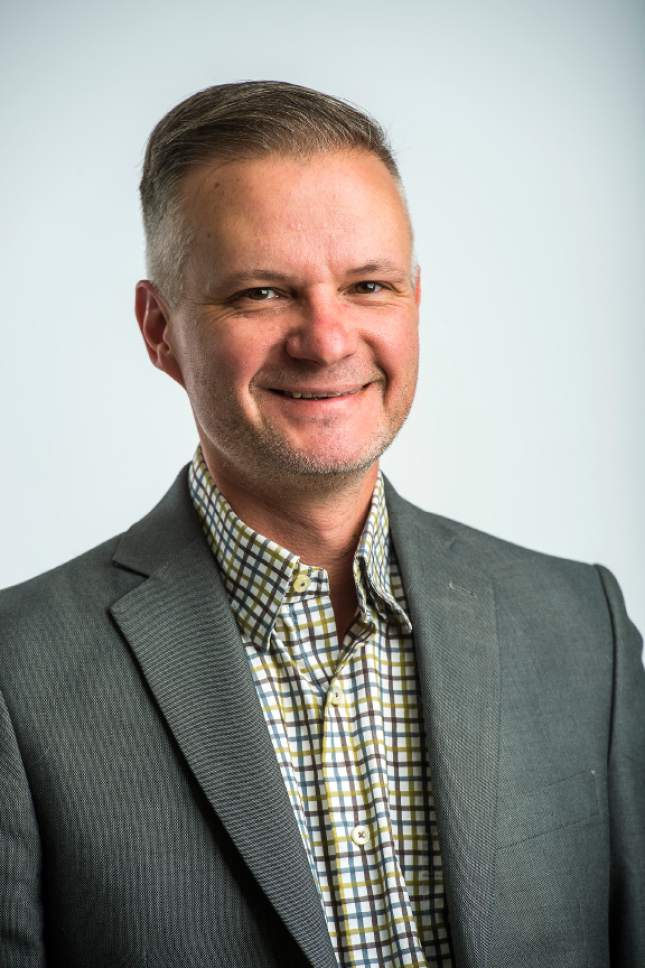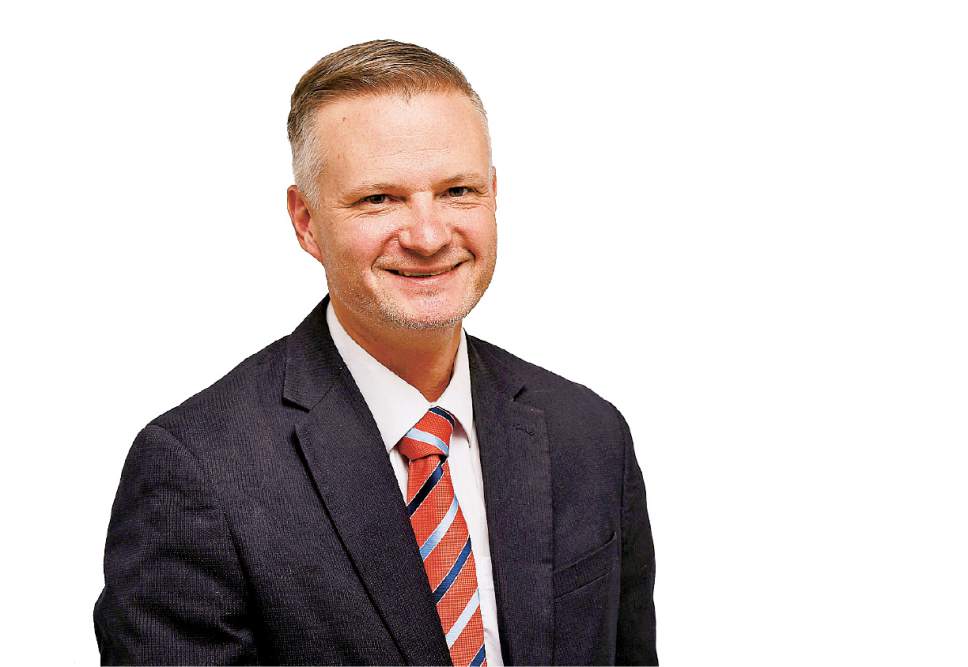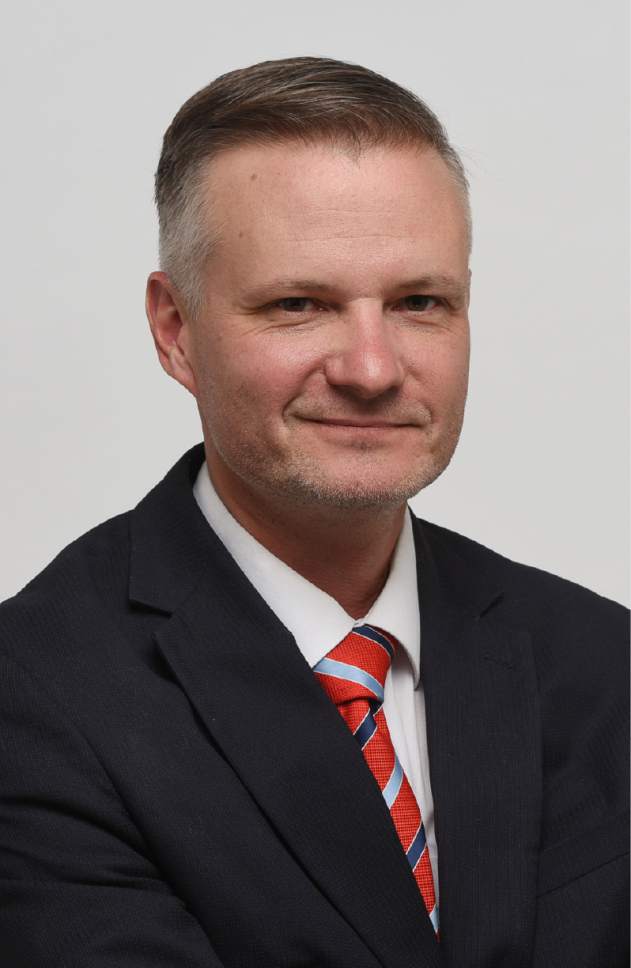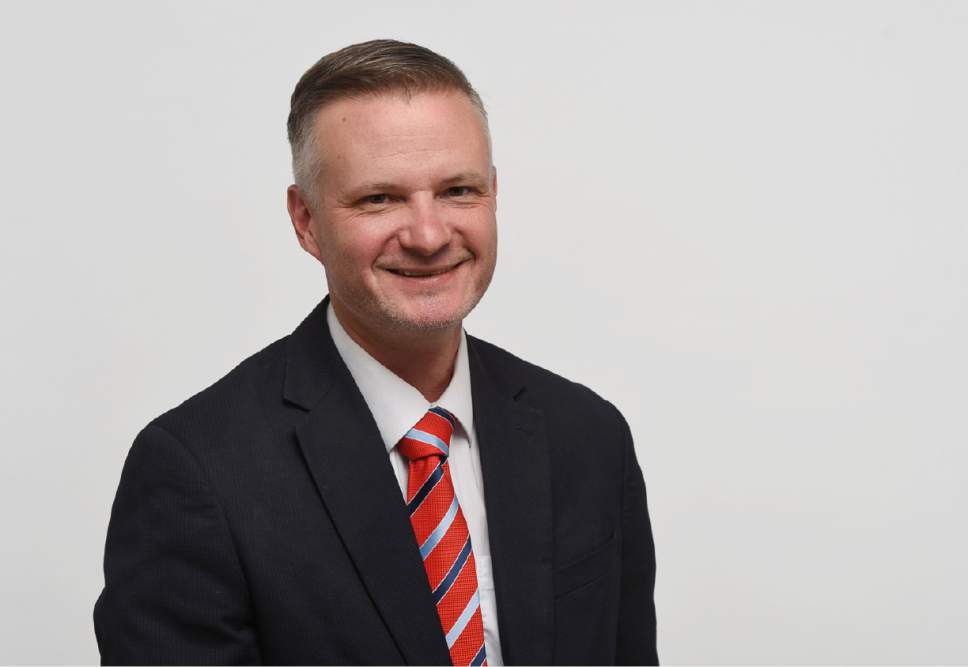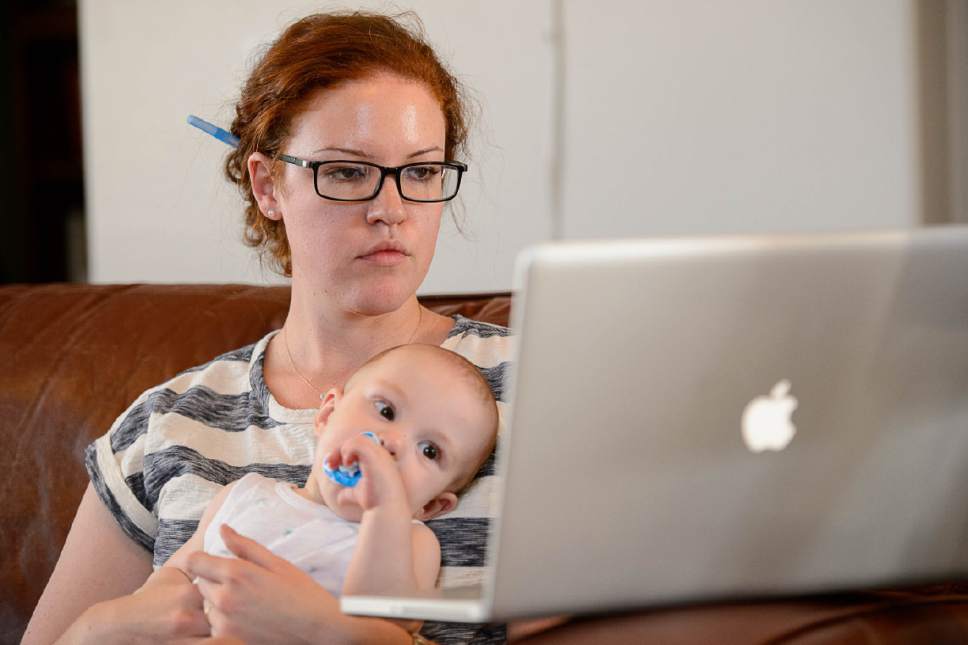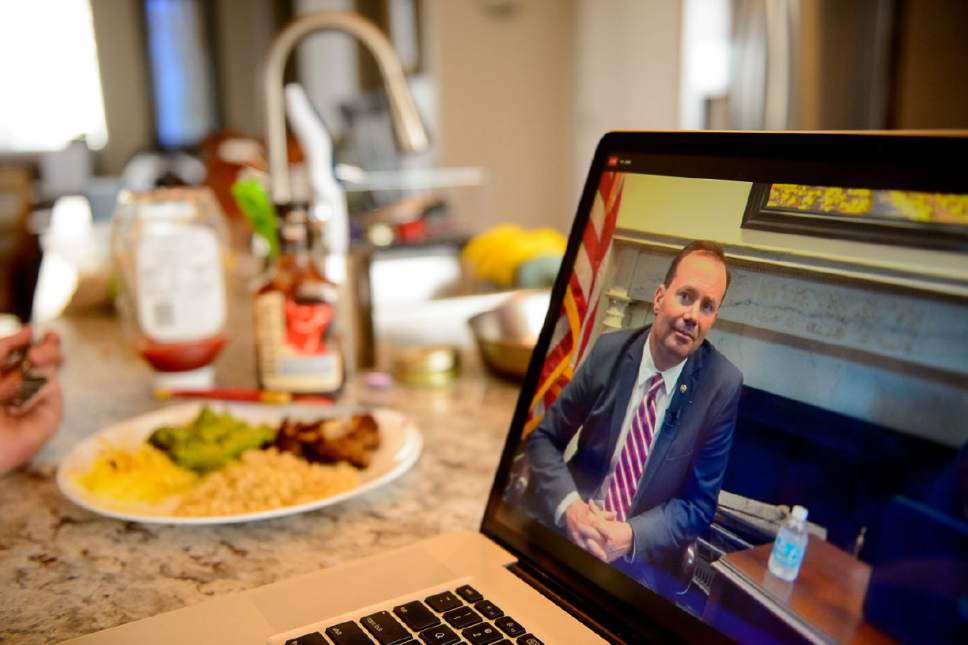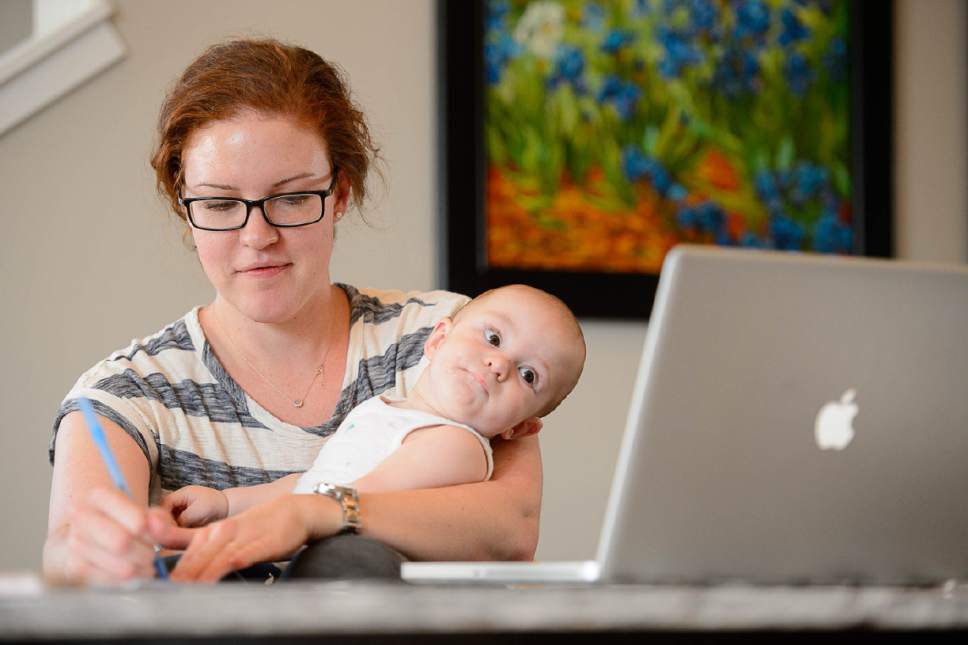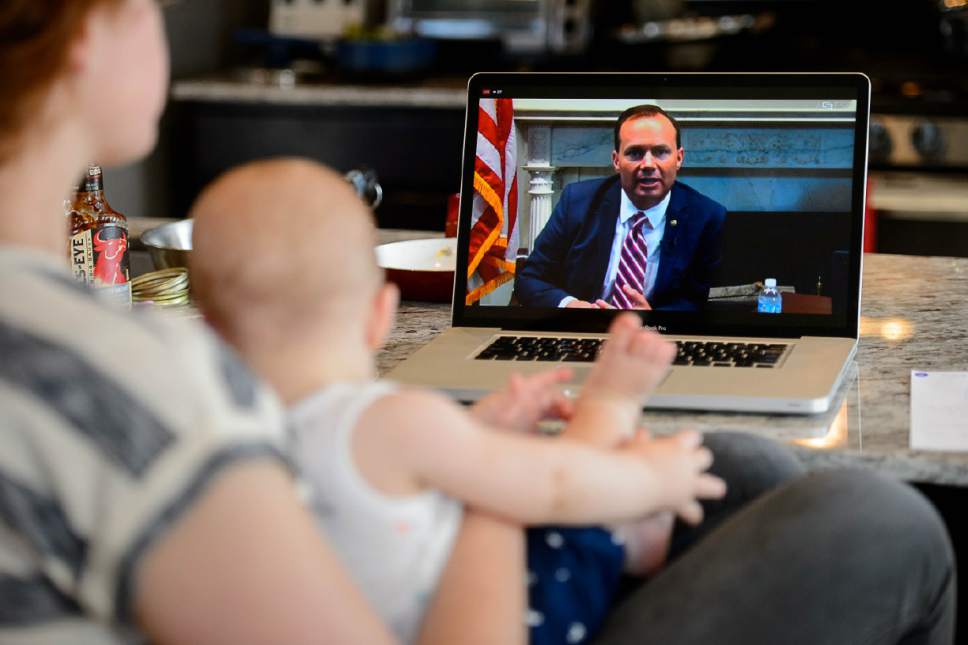This is an archived article that was published on sltrib.com in 2017, and information in the article may be outdated. It is provided only for personal research purposes and may not be reprinted.
Betsy Bivin called in to Sen. Mike Lee's health care tele-town hall Wednesday night to share the story of her ex-husband, Roy, who worked construction for years but never made enough to afford medical insurance.
Roy then got sick and over time his condition worsened. And worsened. By the time he saw a doctor, he had stage 4 colon cancer. He died in 2006, with his pregnant daughter at his bedside, five days before his first grandchild was born.
What Bivin, who is a nurse, told me that she wanted Lee to understand is that we can't go back to the way things were before the Affordable Care Act.
"My real concern is, if the ACA is done away with, there will be people in this world like Roy who will die," she said. "My hope is that our congressmen and senators will realize that more people will die, will become grossly ill" without it.
Her message seemed to have been lost on the senator, who said Obamacare is in a death spiral and that Republicans were elected to rip it out "root and branch."
Lee has been one of the holdouts on the Senate Republicans' Obamacare repeal, arguing it didn't go far enough to roll back the health program that has expanded coverage to millions of Americans, including more than 197,000 of his Utah constituents.
The remedy he has proposed, along with Texas Sen. Ted Cruz, would make an already mean-spirited GOP plan even worse.
His amendment, included in the latest version that Sen. Mitch McConnell, R-Ky., rolled out Thursday, would allow insurance companies to offer cheap plans with minimal coverage as long as they offer at least one policy that meets Obamacare coverage standards.
It's meant to give younger, healthier people an option to save some money and still buy some sort of insurance.
That would seemingly be good news for someone like Katie Matheson, a mother of two young boys: Ulysses, who is 2½, and Abraham, who is 9 months old. Matheson falls into the infamous "doughnut hole." She earns too much to qualify for Obamacare subsidies but cannot afford to get insurance on her own.
She worries the stripped-down plans would be worthless for her — offering insurance coverage in name only.
"So you basically sell a non-health insurance health insurance plan," she said. "I don't understand what good that does."
Insurers would be incentivized to create plans that exclude as many illnesses as possible, and the young invincibles would be left with a Swiss cheese safety net.
Really, it would be the old and frail individuals, people more likely to need to visit their doctor, who would take a beating. They would see the cost for their coverage skyrocket, because those buying the more comprehensive plans would be the most expensive to insure.
Driving the healthiest people out of the risk pool — and the sickest people into it — is a surefire way to send costs soaring. And it's people who know more about insurance markets than I who are drawing this conclusion.
Earlier this week, America's Health Insurance Plans, which represents U.S. insurance companies, warned that the Lee-Cruz proposal would destabilize the insurance markets, potentially wipe out coverage for many with pre-existing conditions, and jeopardize the entire insurance system.
The Henry J. Kaiser Family Foundation, a nonpartisan health care think tank, projected that 1.5 million Americans with pre-existing conditions would face higher premiums under Lee's proposal.
The GOP bill also would drastically scale back subsidies that help pay for insurance on the exchanges, making it a double whammy for customers already slapped with higher premiums. Eighty-five percent of Utahns on the exchange receive those subsidies.
Under the Republican plan, according to a Kaiser analysis, a 60-year-old Salt Lake County resident making $40,000 a year would see his or her health premiums on the exchange explode by $4,280 a year — more than doubling the payment. The results are similar across the state and across income levels.
Matheson listened to Lee's town hall with her parents, who both are covered by ACA plans, as are her brothers. She wanted to hear Lee acknowledge that people have been helped by Obamacare.
"Just because I personally didn't benefit doesn't mean I don't know somebody who has. Millions of people have benefited from the ACA," she said. "Not once have I heard from him that, yes, it's helped these people who have never had insurance and for the first time are able to go to a doctor."
The good news is that the latest GOP iteration has still failed to garner support from some Republican moderates and already may be in trouble. Lee says he's undecided on whether he will back it.
If the latest effort fails, maybe Lee and the other senators will listen to constituents like Bivin and Matheson — and thousands more like them — and turn their attention to fixing the flaws in Obamacare instead of pursuing a path that puts meaningful health care out of reach for millions.
Twitter: @RobertGehrke



